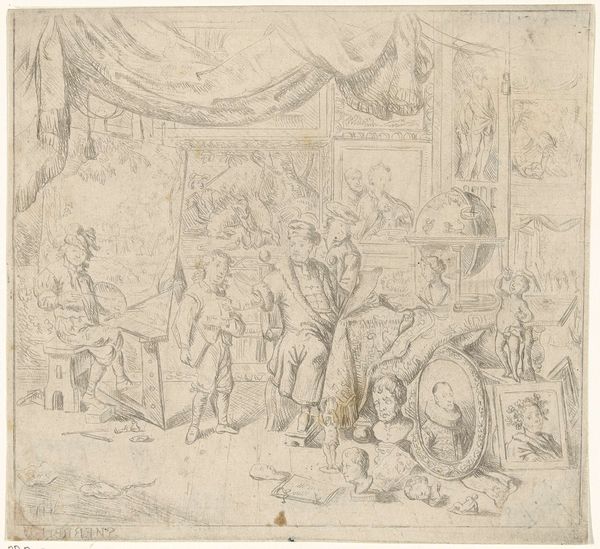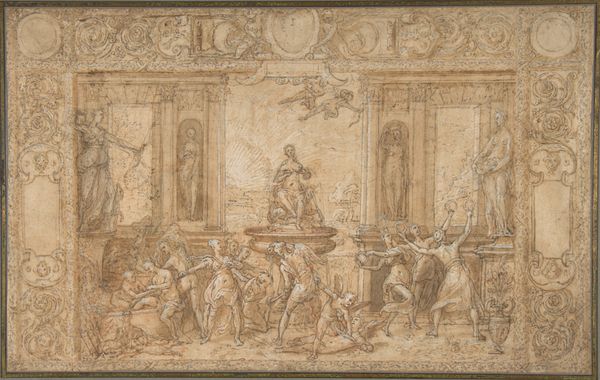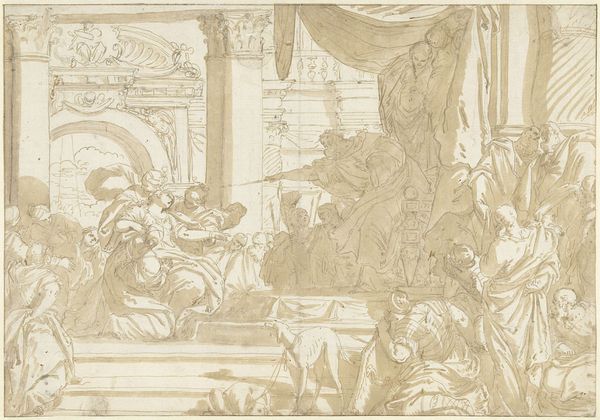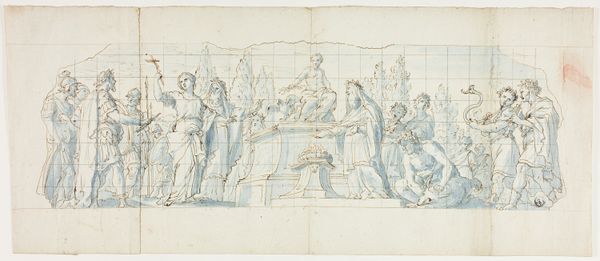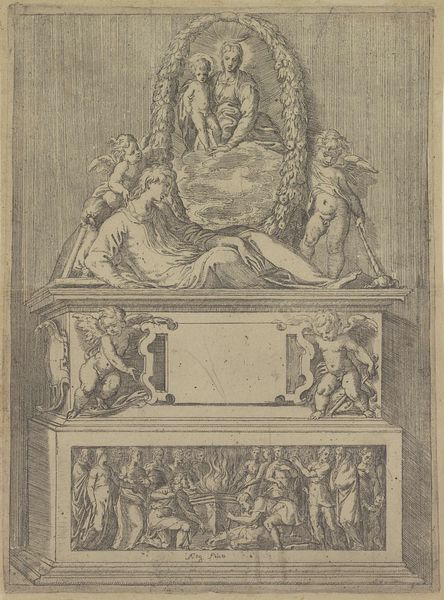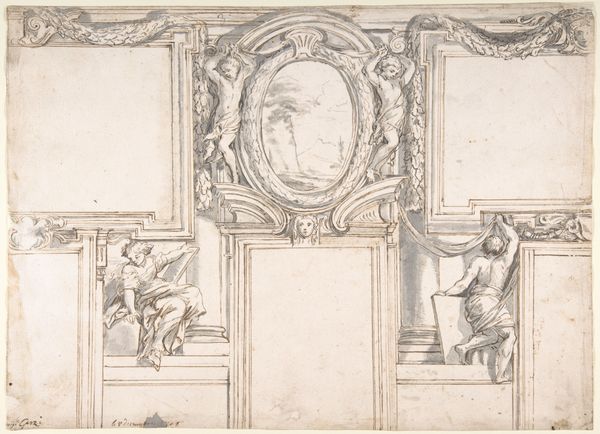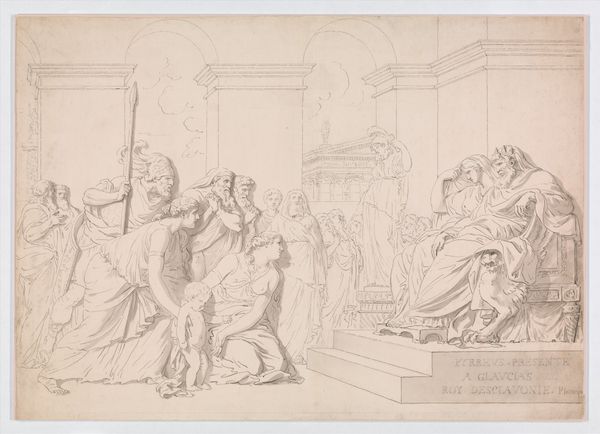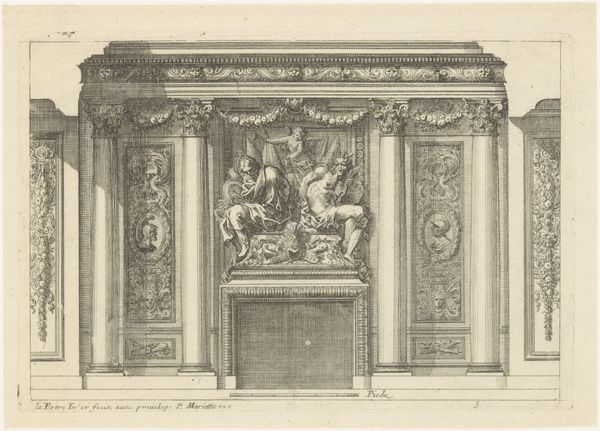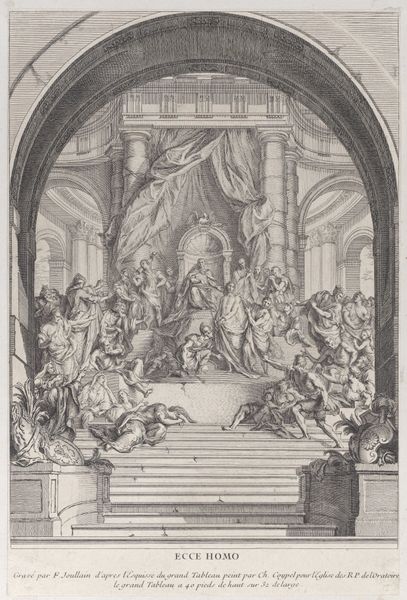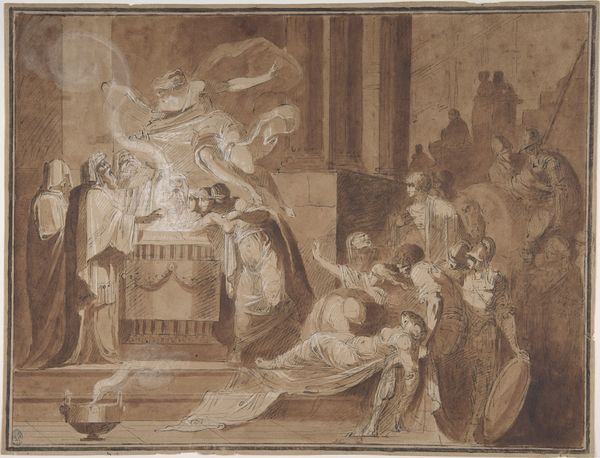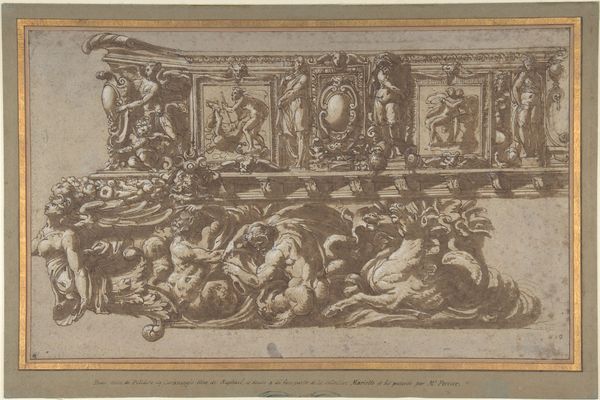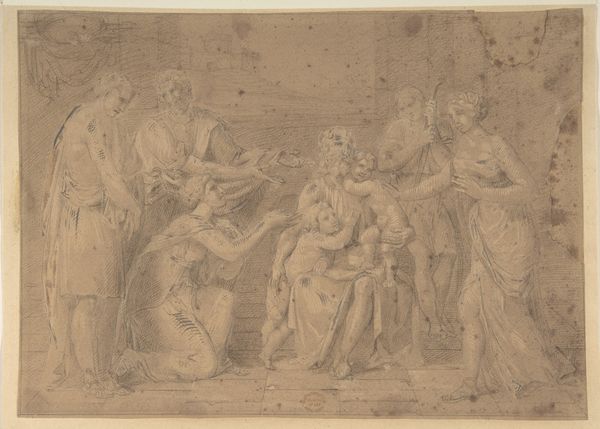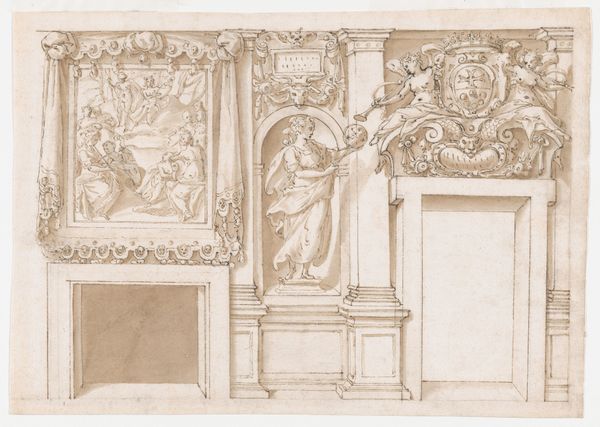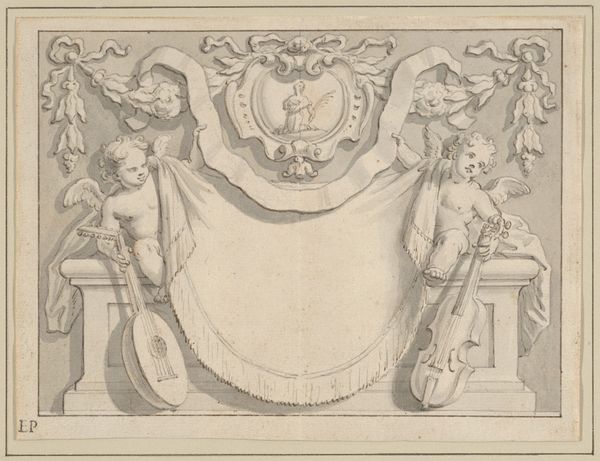
Sketch of a Painted Family Portrait "in situ" 1800 - 1900
0:00
0:00
drawing, print, pencil
#
portrait
#
architectural sketch
#
drawing
# print
#
pencil sketch
#
etching
#
pencil
#
genre-painting
#
history-painting
#
academic-art
Dimensions: 9 5/16 x 13 3/8 in. (23.7 x 34 cm)
Copyright: Public Domain
Editor: Here we have an anonymous sketch from between 1800 and 1900, residing at the Met, called "Sketch of a Painted Family Portrait 'in situ.'" It looks like a pencil rendering of a painting, displayed within a room setting. The gridded floor is quite curious! What are your initial thoughts on this, and what does it suggest to you? Curator: My immediate reaction is to think about the performance of family and the construction of domestic space during this period. Notice how the ‘painting’ within the sketch is itself a portrait of a family, staged in what appears to be an idealised setting. Then consider this sketch; the rendering and the room that contains it… What are we to make of this nesting of domesticity? Editor: That's fascinating – the idea of nested domesticity. Curator: Exactly! We can view the family portrait itself as a deliberate staging – a visual manifesto intended to convey affluence, social standing and constructed roles. The sketch then serves to doubly emphasize the importance of family lineage and identity being carefully presented, not necessarily honestly, within the social sphere. The setting of the portrait within the sketch is key here – does it perhaps resemble a shop display window, further implying constructed social performances and aspiration? What do you think the artist implies by placing what seem to be exact measurements at the base of the piece? Editor: It almost seems as if this drawing documents both the *art* of portraiture and perhaps a subtle, capitalist assessment? Like a receipt. It reminds me a little bit of Marxist readings of representation. Curator: Precisely! Think about the emerging middle classes in the 19th century, and the rising significance of both artistic patronage and the material display of wealth. This sketch perhaps gives a unique insight into the transactional nature of art production within this historical moment. Editor: I hadn't thought of it that way. Now I see it as less a simple rendering and more a commentary on the era's social dynamics! Thanks!
Comments
No comments
Be the first to comment and join the conversation on the ultimate creative platform.
